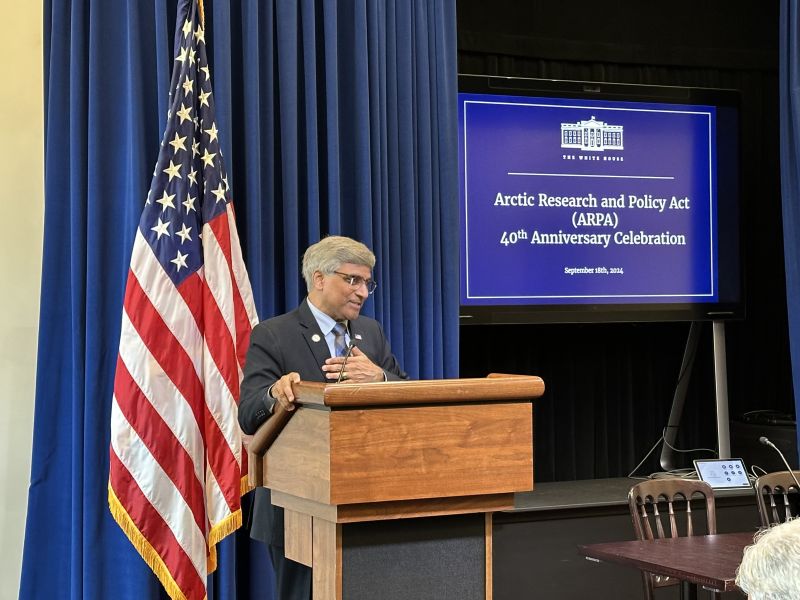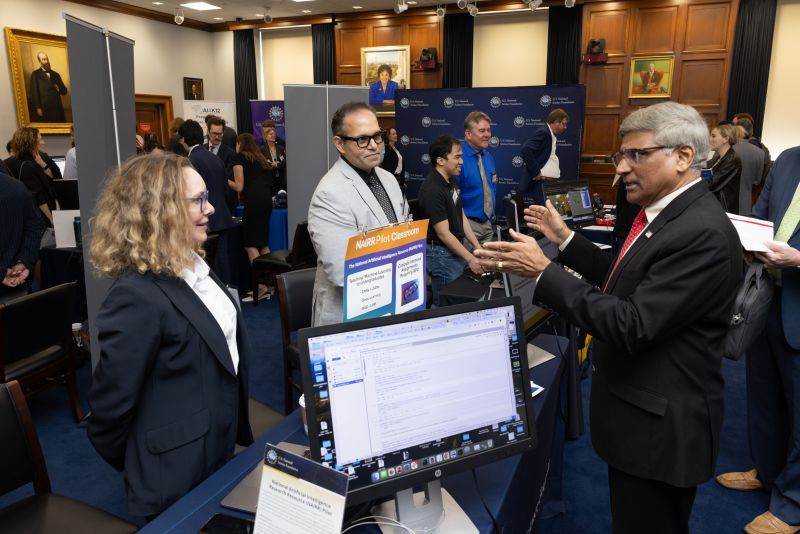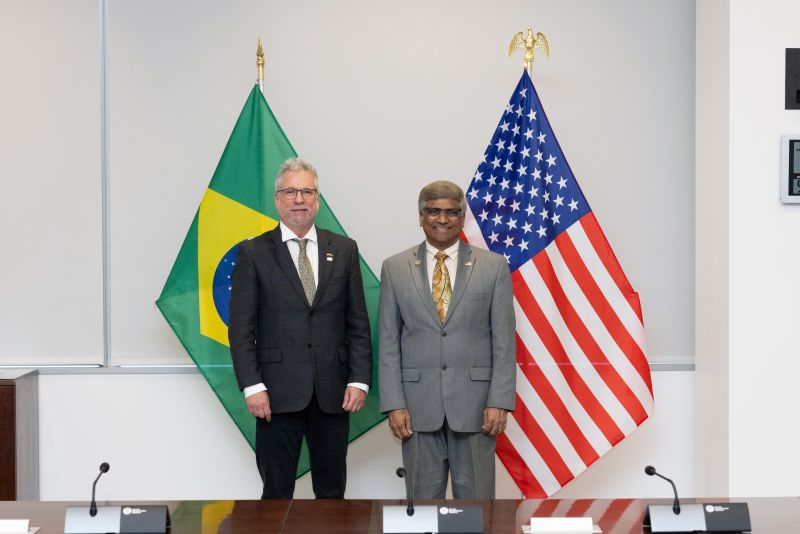This week with NSF Director Panchanathan
This week, NSF Director Sethuraman Panchanathan engaged in discussions and announcements that underscored the agency's commitment to advancing research, innovation and global collaboration.
On September 18, NSF announced two new National Artificial Intelligence Research Institutes for astronomy. These new AI Institutes, launched in partnership with the Simons Foundation, will each receive $10 million from NSF and $10 million from Simons to develop AI-powered astronomical tools to accelerate humanity's understanding of the universe.
On September 19, the director provided opening remarks and participated in the "Empowering the AI Talent of Today and Tomorrow: NSF Investments in AI Education and Development" showcase on Capitol Hill, an NSF-hosted event, in conjunction with the House and Senate AI Caucuses. The event showcased 14 NSF-funded projects and highlighted the critical role NSF plays in shaping a future-ready AI workforce, ensuring that every state and community has the tools and resources to lead in AI innovation and development.
Later that day, Panchanathan joined Senate Majority Leader Chuck Schumer and NY Air National Guard leaders to highlight the importance of recapitalizing the LC-130H Ski Bird Fleet. "NSF's leadership in both polar regions not only keeps the U.S. at the forefront of science and innovation. It also maintains the U.S. as the dominant global year-round presence in the Arctic and Antarctic. This would not be possible without the LC-130H aircraft and the brave and dedicated servicemembers of the New York Air National Guard and the 109th Air Lift Wing. Together, they provide a unique and invaluable service that allows us to reach the most remote parts of the polar regions," said the director.
On September 20, the director hosted Márcio de Castro, the scientific director of the São Paulo Research Foundation, at NSF headquarters to discuss strengthening international partnerships that advance the frontiers of science and technology.




